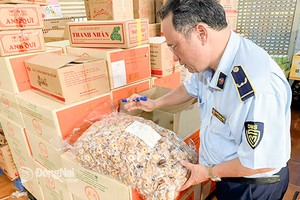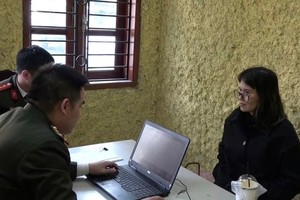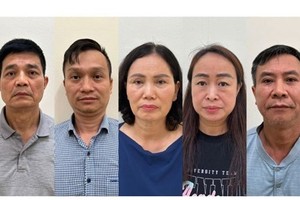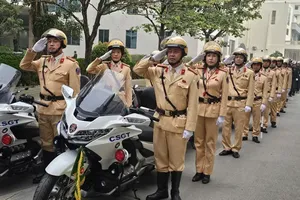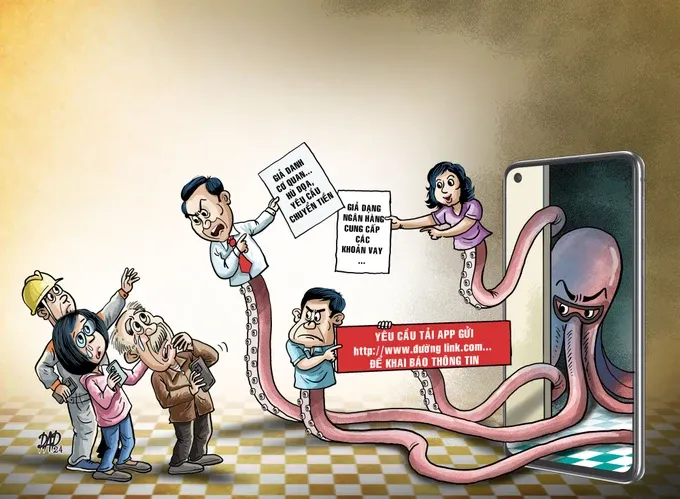
Seeing a high demand for air tickets for traveling or homecoming purposes during the upcoming national holidays and summer vacation, many people with malicious intention create Fanpages on social networks to sell airplane tickets with lucrative benefits. They fake successful transactions to earn more trust from page visitors. However, right after victims send their money, these criminals block the victims and erase all traces of contact to steal all the money.
Therefore, the public are advised only to buy tickets from prestigious agencies or install formal apps of airlines to check the validity of the bought ticket’s code.
Another fraudulent trick is when criminals send fake bank messages or make phone calls to offer beneficial loans online, through which money of the ignorant is appropriated.
One such victim is H.N.P. from Earkar Town of Dak Lak Province. She had received a call from a person introducing himself as an officer of HD Saigon Financial Co. in HCMC. He then offered a loan with a preferential interest rate. In need of money for her business, H.N.P. followed his instruction and provided necessary personal information. The criminal then notified her of a mistake she had made when filling out loan forms and asked for a fine, which would be returned to her along with the loan disbursement. Trusting him, she agreed to send him VND120 million (US$4,840), to be lost forever.
The police warn that messages with such content as ‘No need for mortgage – VND0 interest rate’ or ‘Superfast loan – Receiving money after 30 minutes’, ‘Low interest rate – Receiving money immediately’ all belong to online scamming activities and should not be followed.
Another popular trick targets freelance people in need of a job without having to leave their home. They run an ad of ‘Doing virtual tasks – Earning real money’ to attract these people with a promise to gain a profit much higher than the amount spent. Many victims have fallen into this trick and even lose billions of VND after participating in stock and financial investments.
Criminals carrying out this trick usually use phone numbers with the prefixes of 028888xxxxx/ 029988xxx, introducing themselves as officers of famous securities trading floors like SSI, MBS, VPS, VNDIRECT. They first invite victims to join zalo groups, where they then share information of winning investors (actually fake data) to earn more trust from newcomers. As victims invest their own money, they discover the provided information is not precise. However, to withdraw the investment, the victims must pay service fees like insurance or income tax, which is unreasonably high. Thus, those ignorant people continue to have their money appropriated until they have no financial capability to continue the game.
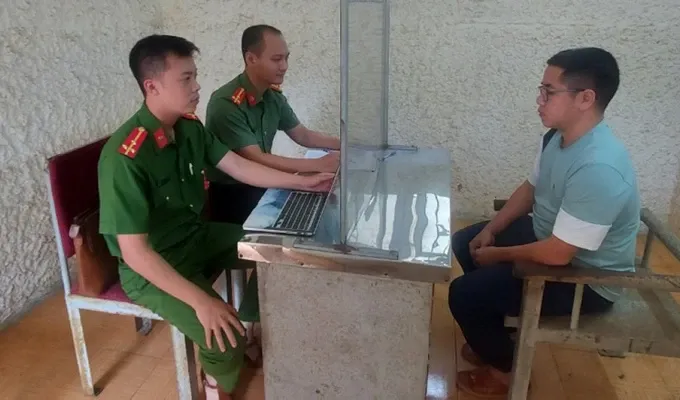
Several people when discovering they have been scammed continue to believe other ads faking functional agencies who want to help victims retrieve the most money. Thinking that these are good people, the victims follow those instructions and put themselves into danger for the second time.
The Public Security Ministry announces that the Department of Cyber Security and Hi-tech Crime Prevention now has no formal website or Fanpage yet. It is on the way to develop one such with strong security and clear authentication to avoid being faked.
The police warn citizens to be cautious against offers to earn easy money or to receive gifts from friends on social networks. Also, calls from people impersonating officials of police stations, procuracy or court offices to scare people into telling them bank account information or OTP codes or even asking for money transfer are all popular scams.
Functional agencies commented that victims of these frauds are usually the senior, students, and low-income laborers who normally lack sufficient understanding of cunning fraudulent acts. Deputy Director Tran Quang Hung of the Information Security Authority (under the Ministry of Information and Communications) said that as smartphones have become more popular among these vulnerable subjects with a low capability to recognize scammers, these people are ideal targets of cyber criminals.






